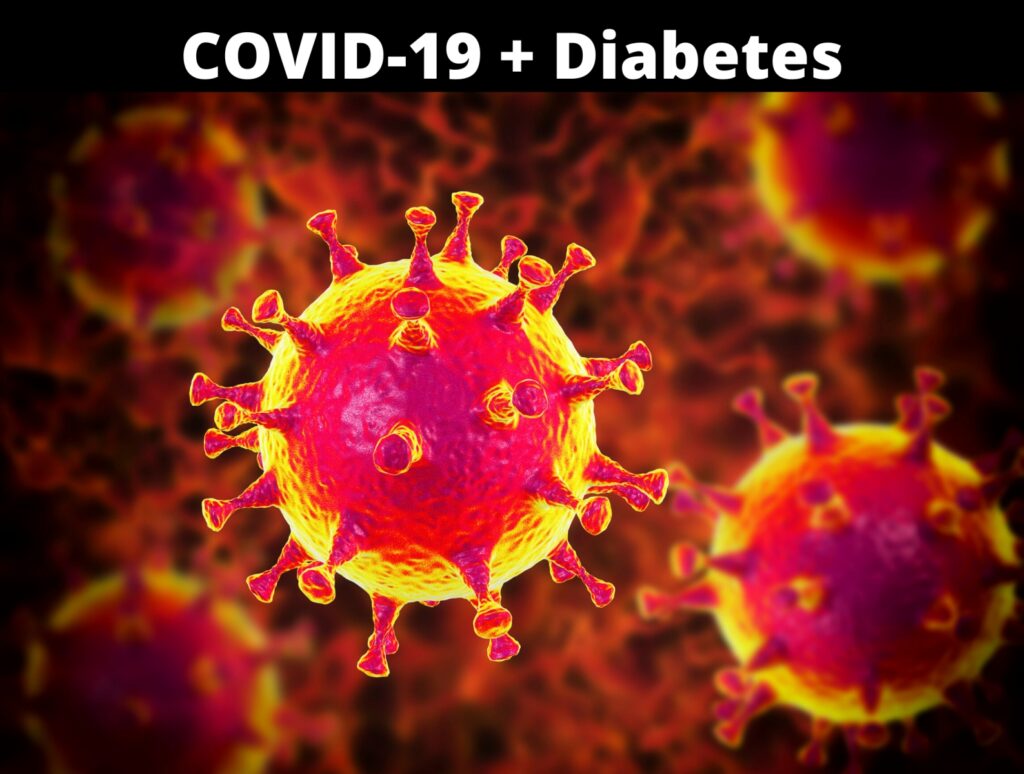COVID-19 is a respiratory pandemic caused by severe acute respiratory syndrome corona virus-2 (SARS-COV-2). The World Health Organization (WHO) is constantly monitoring and updating information regarding its spread, mortality and morbidity.
In Ayurveda, the concept of pandemic diseases is covered under Charak Samhita, Vimana Sthana, Chapter -3.
Madhumeha may be equated with diabetes mellitus. Master Charak has explained it as a life-style disorder due to the over-indulgence in heavy food, day-time sleep, lack of exercise, sedentary lifestyle etc.

Risk factors for COVID-19 disease in people with premaha (diabetes):
The symptoms of COVID-19 may range from mild to severe. Mild symptoms may include fever, cough, sore throat, tiredness and shortness of breath. People suffering from diabetes may have a higher risk of developing severe complications. 70% of the patients with diabetes in India have poor glycaemic control and many have diabetes related complications.
Ayurvedic diet and Care for post COVID-19 diabetic patients:
Pathya ahara (wholesome diet) and pathya vihara (wholesome lifestyle) can play a major role in controlling diabetes and preventing complications. This includes:
- Intake of fiber rich green vegetables and cereals.
- Yava (barley) is high in fiber content and highly recommended for diabetic patients.
- Spices should be included in diet by post covid diabetic patients as these food adjuncts are recognized to possess medicinal properties. Their therapeutic role is highly appreciated in Ayurveda. They have several beneficial physiological effects. A number of condiment and spices administered in Ayurveda includes black pepper, asafoetida, fenugreek seeds, tulsi leaves, cumin seeds, mustard, garlic, onion, ginger etc. These are reported to possess potential antidiabetic agents.
- Patient suffering from diabetes should drink water boiled with khadira, water boiled with kusa herb and juice or decoction of triphala.

Use of Rasayana Dravya:
Rasayana Dravyas include:
- Ashwagandha (Withania somnifera): Ashwagandha acts as an adaptogen that helps the body to adapt various kinds of stress and promotes stamina and general health well-being. It also helps in calming and strengthening the nervous system.
- Guduchi (Tinospora cordifolia): Giloy, known for its immunity strengthening properties, can be extremely beneficial in controlling blood sugar levels and helps in managing diabetes.
- Shatavari (Asparagus racemosus): Shatavari is known as ‘Queen of Herbs’. Being a powerful tonic, shatavari not only relieves one from physical and emotional stress but it helps in managing diabetes as well. It also helps in the treatment of bacterial and fungal infections.
- Chireta (Andographis paniculata): Chireta is a powerful medicinal herb that increases metabolism. It is also helpful in managing diabetes by increasing insulin secretion and reducing oxidative stress due to its high anti-oxidant activity.
- It also protects kidneys from damage by free radicals due to the presence of certain bioactive compounds.
- Punarnava (Boerhavia diffusa): Among the diabetic population, 20-40% of patients develop diabetic nephropathy. As diabetic nephropathy is a complication of diabetes, punarnava is an herb that is useful in the treatment of urinary complaints due to diabetes.
- Punarnava has ushna veerya (hot potency) which corrects srotasanga existing in the kidneys.
- The hot potency of punarnava assists in the regeneration of renal tissues.
- This herb also acts as anti-inflammatory and diuretic.
- Pippali (Piper longum): Pippali is widely used in Ayurveda for the treatment of diabetes, obesity, digestive disorders etc.
- It is useful in the treatment of diabetes as the production of insulin becomes active by its consumption.
- It also helps in the breakdown of starch into glucose which in turn leads to low blood glucose levels.
- Amalki (Emblica officinalis): Amla helps in diabetes by balancing high blood sugar levels.
Yoga, Pranayam and Meditation:
Yoga, Pranayam and Meditation are extremely helpful in reducing stress in diabetic patients. The blood glucose level can be raised due to stress, which further suppress the immune system and increases blood pressure.
The yoga practices along with pranayama and Meditation which are known to reduce anxiety and depression. Meditation is found to reduce inflammation markers and is very useful for reducing stress in COVID and post COVID-19 patients.
So, it can be concluded that wholesome diet along with practice of Yoga, Pranayam and Meditation can help the patients of post COVID-19 diabetes to prevent the complications.
Disclaimer:-
This article is not a substitute to the standard Medical Diagnosis or personalized Ayurvedic Treatment! It is intended only for Information!
For experts consultation, please write us at care@blessayurveda.com.
1,914 total views, 1 views today